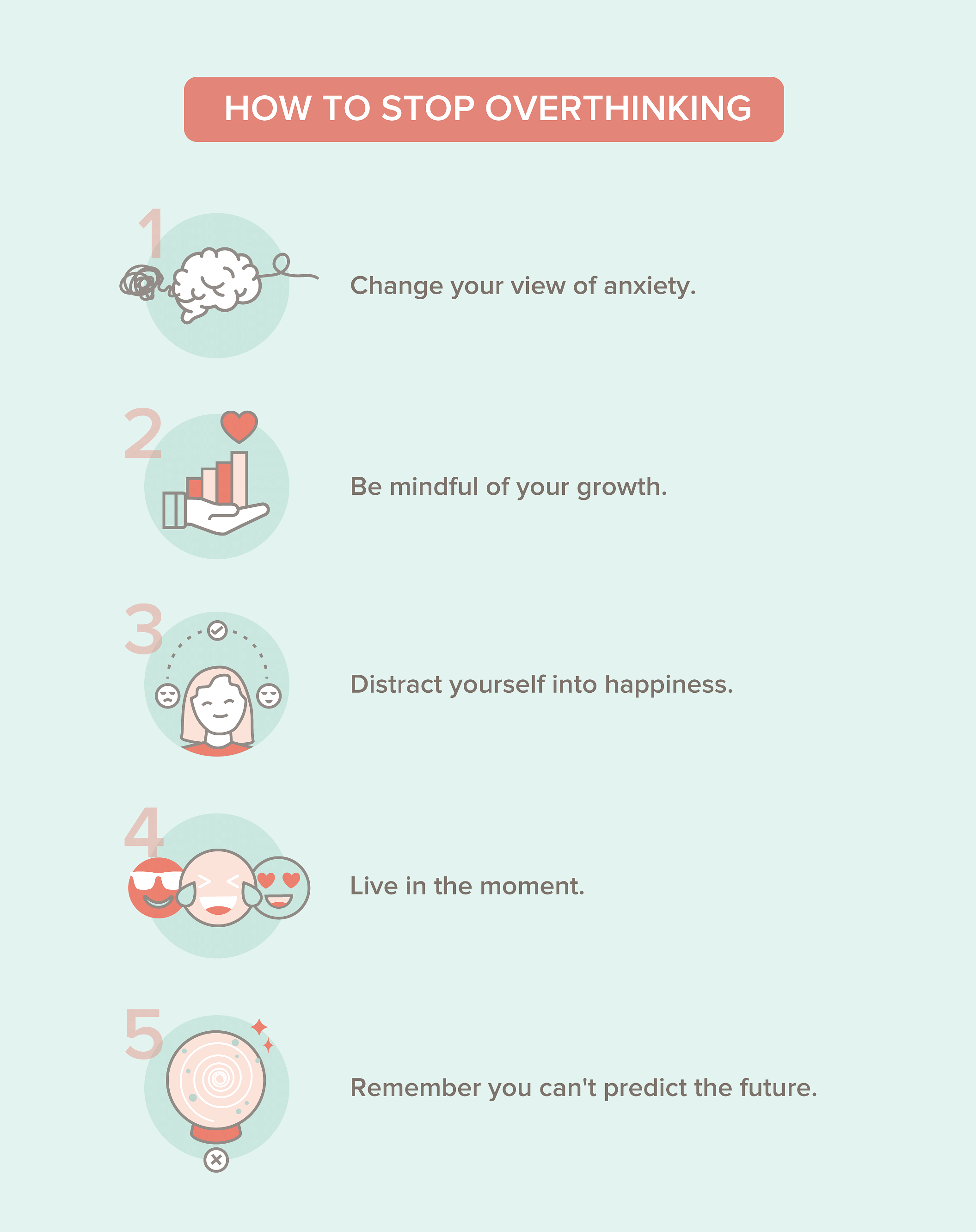How To Stop Overthinking And Live In The Moment

Do you ever feel trapped in a whirlwind of thoughts, replaying past events or worrying about future possibilities? You're not alone. Many struggle with overthinking, a common challenge that can steal your joy and prevent you from fully experiencing the present.
This guide is for you, the individual ready to break free from the cycle of constant rumination and embrace a more mindful, present-focused life. We'll explore practical strategies to quiet your mind and rediscover the beauty of the now.
Understanding the Overthinking Trap
Overthinking often stems from a desire for control or a fear of uncertainty. It can manifest as persistent worry, obsessive analysis, or dwelling on past mistakes.
The problem is, excessive rumination rarely leads to solutions. Instead, it fuels anxiety, stress, and a sense of disconnection from the present moment.
Learning to live in the moment isn't about ignoring your responsibilities or problems. It's about developing the ability to observe your thoughts without judgment and redirect your focus to the present experience.
Strategies to Quiet Your Mind
Several techniques can help you break free from overthinking. Let's delve into some of the most effective:
Mindfulness Meditation
Mindfulness meditation involves focusing your attention on the present moment without judgment. Start with short sessions, gradually increasing the duration as you become more comfortable.
Apps like Headspace and Calm offer guided meditations for beginners. Even a few minutes a day can make a significant difference.
Deep Breathing Exercises
Deep breathing can activate the parasympathetic nervous system, promoting relaxation and reducing anxiety. Try box breathing: inhale for 4 seconds, hold for 4 seconds, exhale for 4 seconds, hold for 4 seconds, and repeat.
Engage Your Senses
When you're caught in a cycle of overthinking, shift your focus by engaging your senses. Notice the sights, sounds, smells, tastes, and textures around you.
This simple act can ground you in the present moment. For example, savor a cup of tea and pay attention to its aroma and taste.
Physical Activity
Exercise is a powerful tool for managing stress and reducing overthinking. Physical activity releases endorphins, which have mood-boosting effects.
Even a short walk can help clear your head. Find an activity you enjoy and make it a regular part of your routine.
Challenge Negative Thoughts
Often, overthinking involves negative or distorted thoughts. Learn to identify and challenge these thoughts. Ask yourself if there's evidence to support them or if they're based on assumptions.
Replace negative thoughts with more realistic and balanced ones. Cognitive Behavioral Therapy (CBT) techniques can be helpful in this process.
Practice Gratitude
Focusing on what you're grateful for can shift your perspective and reduce negativity. Keep a gratitude journal and write down things you appreciate each day.
This practice can help you cultivate a more positive outlook and appreciate the present moment.
Set Boundaries and Limit Screen Time
Constant exposure to information and social media can contribute to overthinking. Set boundaries around your screen time, especially before bed.
Unplugging allows your mind to rest and reduces the influx of potentially stressful stimuli.
Dealing with Difficult Emotions
Living in the moment doesn't mean suppressing or avoiding difficult emotions. It means acknowledging them without judgment and allowing yourself to feel them.
Practice self-compassion. Treat yourself with the same kindness and understanding you would offer a friend. Remember that everyone experiences challenges and setbacks.
If you're struggling to manage difficult emotions, consider seeking support from a therapist or counselor.
Creating a Present-Focused Lifestyle
Living in the moment is a journey, not a destination. Be patient with yourself and celebrate your progress along the way.
Incorporate mindfulness into your daily activities. Pay attention to the sensations of brushing your teeth, eating your meals, or walking to work.
Cultivate meaningful connections with others. Engage in conversations, listen attentively, and be present in your interactions.
Find activities that bring you joy and fulfillment. Pursue your passions and make time for hobbies that nourish your soul.
The Importance of Self-Care
Self-care is essential for managing stress and maintaining a healthy mind. Make time for activities that rejuvenate you, such as taking a bath, reading a book, or spending time in nature.
Prioritize sleep, nutrition, and exercise. These basic needs are fundamental to your well-being.
Remember, you can only be fully present when you're taking care of yourself.
Overthinking in Relationships
Overthinking can significantly impact relationships. It can lead to anxiety, insecurity, and misinterpretations of your partner's actions.
Communicate openly and honestly with your partner about your thoughts and feelings. Practice active listening and avoid making assumptions.
Focus on building trust and intimacy. Remember that healthy relationships require vulnerability and authenticity.
Breaking Free: A Summary
Living in the moment is a skill that can be learned and cultivated. By practicing mindfulness, deep breathing, and other techniques, you can quiet your mind and reduce overthinking.
Challenge negative thoughts, practice gratitude, and prioritize self-care. Remember that this is a journey, and progress takes time.
Embrace the present moment and discover the joy of living fully.
Take Action Today
Start by incorporating one or two of the strategies discussed in this guide into your daily routine. Be patient with yourself and track your progress.
Consider exploring mindfulness apps or seeking guidance from a therapist. The journey to a more present-focused life is worth the effort.
Ready to quiet your mind and embrace the now? Your journey to a more mindful life starts today!


















